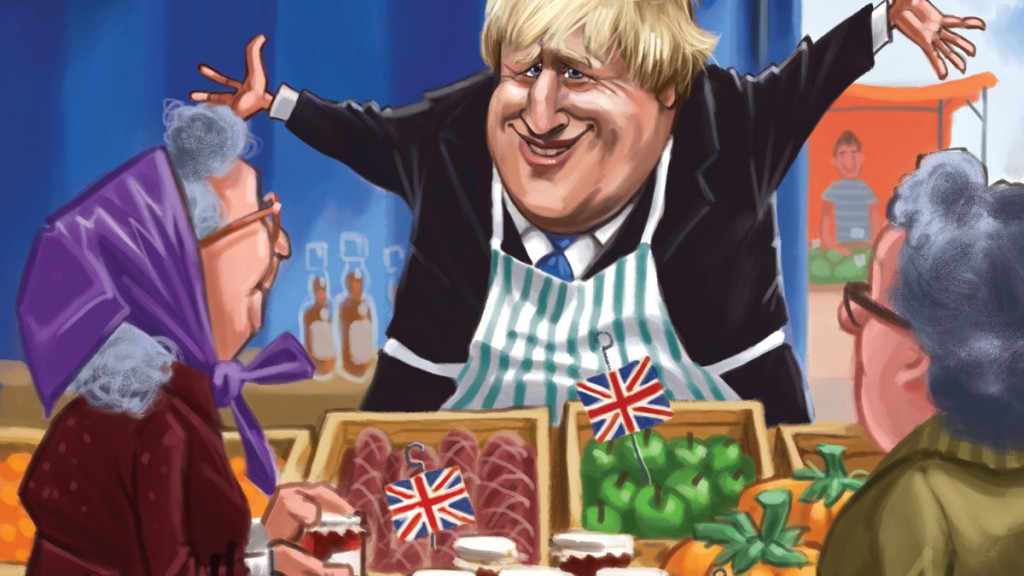
This week – inevitably – MoneyWeek looks at the consequences of the EU referendum result. Our panel of experts pick the best places to put your money in the wake of the vote to leave; Matthew Lynn looks at a how the UK could lead a potential rival to the EU; and John Stepek looks at what it means for house prices.
So, if you want to know what you should do with your money now, sign up to MoneyWeek magazine. You’ll get the magazine delivered straight to your door. Not only that, you’ll get our smartphone app (iOS and Android) thrown in too, and full access to the MoneyWeek website.
What to buy in Brexit Britain
In our cover story this week, regular MoneyWeek writers Dominic Frisby, Charlie Morris and Tim Price are joined by fund manager Max King to pick apart what Brexit means for the economy and for stocks, and to point out some of the bargains to be had.
Britain is “no more screwed post-Brexit than pre-Brexit “, says Charlie, “it’s exactly the same”. He thinks the best bet is to “think internationally and buy diversified earning streams”.
Max has a different opinion, certainly in the short term. “I think you’ve got to be UK-orientated”, he says, with the fall in the FTSE 250 opening up plenty of opportunities for profits. He’s also bullish on property: “I don’t believe that Britain’s business prospects will be diminished by Brexit”, he says. Commercial property is “a pretty safe buy for any UK-based investor”, he reckons.
Dominic and Tim like currencies. “I’ve never seen consensus like the current one that sterling is a disaster waiting to happen”, says Dominic. But, certainly against the euro, “sterling has to be a buy”. Tim agrees: “I almost never have a currency opinion, but sterling doesn’t seem expensive here, particularly against the euro.”
Of course, there’s much more detail in the magazine, with each expert picking specific investments to buy. To find out exactly what they’re tipping, sign up to MoneyWeek magazine.
EFTA could grow to challenge the EU
Pretty much the only thing anyone knows right now is that we don’t know exactly what the future holds for the UK. Some who still talk of a second referendum think we may not even leave the EU at all. Others prophesy doom as we are cast out into the economic wilderness.
But in his column this week, Matthew Lynn proposes something in between: “A compromise everyone can agree on”. He thinks EFTA – the European Free Trade Area – could hold the solution.
“Right now”, says Matthew, the free-trade club comprised of Iceland, Norway, Switzerland and Liechtenstein is “a group of wealthy but not very important nations”. But if Britain were to join, it could “soon be a major force in its own right, and an alternative for other European countries fed up with Brussels.” Find out why Matthew thinks it’s such a good idea with sign up to MoneyWeek magazine.
The big question: what about house prices?
The one thing that gets Britons talking is house prices. Before the vote, the Treasury warned of a 10-18% slump if Britain voted out. Were they right? “At first sight”, says John, “it may seem so”, with Foxtons issuing a profits warning.
But “London property was already on the ropes”, says John. And any fall in house prices is more likely to be about things other than Brexit, including “the recent changes to the rules on stamp duty and taxing landlords”.
On the other hand, says John, “post-Brexit weaker pound might in fact boost demand.”
Get the most out of your pound
Talking of a weaker pound, going abroad – for a while at least – is going to be a little bit more expensive for all of us. So if you’re off on your holidays, you’re going to want to get as many euros, dollars or Icelandic krone for your pound as you can. Pretty much everyone knows not to wait till you get to the airport to change your money (you do know that, right?) but where do you get the best deal? Natalie Stanton has the answers.
Elsewhere, Alex Williams looks at the state of British stocks and asks: “Is this a buying opportunity?” He also has his usual roundup of the UK press’s other share tips. Matthew Partridge turns his eye across the Atlantic to the US presidential elections and asks what effect it could have on stocks.
As ever, there’s far too much to cram into a short email like this. If you want to see what Edward Chancellor thought of the referendum, or read Simon Wilson on the “deficit that nobody’s talking about” (Britain’s current account deficit, which is at its largest since the 1940s) – plus the usual pages on homes, toys and travel – then you’ll just have to sign up to MoneyWeek magazine.